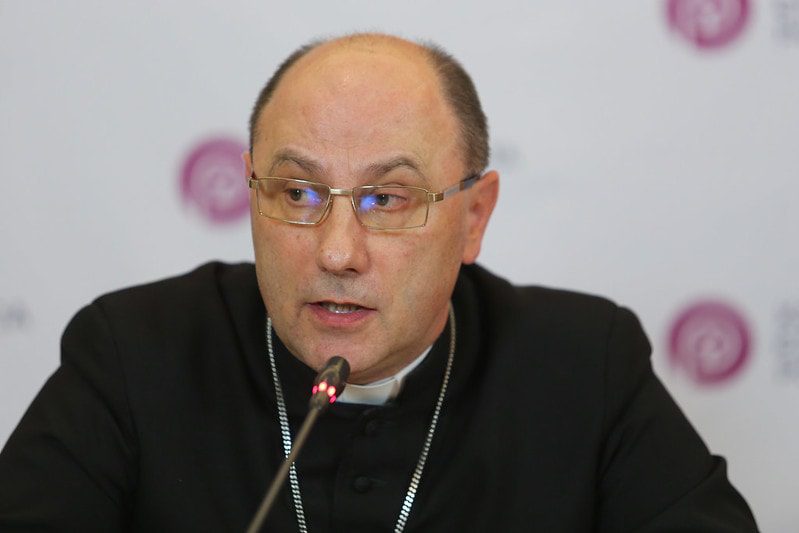
As the presence of migrants at Europe’s eastern edge solidifies into another humanitarian crisis, Archbishop Wojciech Polak, archbishop of Gniezno and Poland’s top bishop, said sheltering refugees is a Christian mandate and he’s willing to have refugees in his diocese.
In an interview with the Catholic Information Agency aired on Polish television on December 25th, he reflected on responding to the migrant crisis at the country’s border.
He was asked about a survey that showed that Catholics in Poland were more opposed to admitting refugees into the country than atheists. Polak responded:
If this research reflects the actual beliefs of believers, it is an even more urgent call for me to repeat aloud and again and again recall the Gospel call for help and respect for every person, especially those in need. This is the Christian faith. This is what Jesus teaches. He, too, was a refugee. After all, he fled with his parents to Egypt against the persecution of Herod.
In November, as many as 4,000 migrants, mostly Kurds from Iraq and Afghans gathered at the Polish border attempting to break through and enter illegally into Europe. The EU accused the Belarusian president Victor Lukashanko of deliberately bringing people from Afghanistan and the Middle East to the Polish border and inciting them to cross illegally into Europe in retaliation for EU sanctions. Lukashenko denies the charge. Human rights groups have also accused Polish authorities of “pushbacks,” the practice of physically forcing people back across the border. Pushbacks are against international law and are considered a violation of the right of migrants to due process and to seek asylum.
Tension at the border has calmed since November, but many people are now essentially stranded. In Polish forests, those who managed to slip through the border hide from authorities. In Belarus, many others are still in the no-man’s land approaching Poland. The Guardian reports that as hard winter has set in, Belarus soldiers have moved 1,000 migrants from an informal camp to an old warehouse further away but still well in sight of the Polish border. Migrants told The Guardian they are not being mistreated by the soldiers, but conditions are difficult, and uncertainty hangs over them. Many are still attempting to sneak into Poland.
Polak, though, is ready to take them into his diocese. “Yes, I would accept it,” he said in the interview. “But the admission itself is not enough. We need a far-reaching, wide-ranging system of assistance that would enable them to find each other, integrate, and function in a new place.”
He said help for refugees needs to include assistance finding employment, learning the local language, legalizing their residency in the country, and building new lives in Poland should they choose to stay.
He offered as an example the work with refugees already going on in the Archdiocese of Lublin, where approximately 30 refugees have been given housing and are being assisted by religious congregations and non-profit organizations.
“In my opinion, this path should be followed, and we have some experience in this matter in the Church. I think, for example, of the Refugee Assistance Centers run by Caritas. Catholic organizations and religious congregations should be involved,” he said.
He added that the church cannot do it alone.
“Alone, without the cooperation and help of the government, we are not able to relocate and accept refugees,” he said.
In November, the Polish Bishops’ Conference took up a national collection to help fund the work Caritas is doing with refugees at the border.
“The funds collected during the nationwide collection will be used to finance Caritas Poland’s aid activities in the border areas during the migration crisis and the process of long-term integration of refugees who decide to stay in Poland,” Archbishop Stanisław Gądecki, the president of the Polish Bishops’ Conference, said in a homily announcing the appeal.
Politico reported that the Croatian border is also seeing an increase in migrants seeking asylum in Europe. Most are coming from Afghanistan, and aid workers fear they will only keep coming since the country fell to the Taliban in August.
The news outlet interviewed one man who had been traveling with his family for four months to reach Europe.
“As a Westernized family, we had to leave or the women of my family wouldn’t have stood a chance,” he said.
